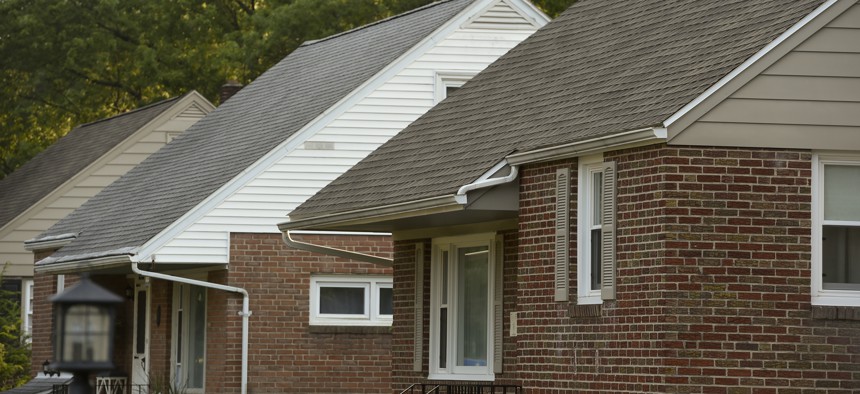Biden Administration Plans for Stronger Fair Housing Enforcement

Photo By Ben Hasty/MediaNews Group/Reading Eagle via Getty Images
A pending Department of Housing and Urban Development rule would set new requirements for state and local agencies and mark the reversal of a Trump-era policy.
Cities would face greater federal scrutiny to ensure they are promoting fair housing and trying to reduce racial segregation, under a new proposal from the Biden administration.
The 284-page proposed rule details how the U.S. Department of Housing and Urban Development would carry out a section of the landmark 1968 Fair Housing Act that was rarely enforced for decades. That part of the law has been subject to fierce debate and regulatory seesawing in recent years under different presidential administrations.
The new “Affirmatively Furthering Fair Housing” rule is similar to one that took effect under former President Barack Obama in 2015, but that was subsequently scrapped and then replaced by the Trump administration in 2020.
The Biden administration’s rule requires states, cities and public housing agencies that receive federal housing money to submit an equity plan to HUD every five years. The rule would require significant community input when shaping those plans, as well as concrete steps the local agencies would take to increase access to fair housing.
Participating agencies that don’t comply could risk losing federal funding.
“The proposed rule would result in greater impact by charging local governments and other recipients of HUD funding to set ambitious goals to not only confront and reject housing discrimination in all forms but recognize and remedy enduring inequality,” wrote HUD Secretary Marcia Fudge in an opinion piece for CNN.
“It would give state and local leaders the tools and framework necessary to advance fair housing,” she added. “Most importantly, the proposed rule would give the community a seat at the table in our ongoing work to guarantee fair housing, while adding accountability mechanisms to ensure that recipients of HUD funding comply with their duty to affirmatively further fair housing.”
The Fair Housing Act prohibits discrimination based on a person’s race, color, national origin, sex, religion, disability and familial status. The proposed rule would require communities to address fair housing concerns for those categories as well.
Housing and civil rights groups praised the new plan.
“Housing justice and racial justice are inextricably linked,” said Diane Yentel, the president and CEO of the National Low Income Housing Coalition. “More than ever, large-scale, sustained investments and anti-racist reforms are necessary to ensure that people with the lowest incomes have quality homes that are accessible and affordable in communities of their choice. The administration’s action today is an important step toward addressing structural racism and achieving greater racial equity and justice.”
For decades after the Fair Housing Act passed, federal regulators did little to ensure that local communities were actively addressing segregation and other long standing fair housing issues. After government watchdogs criticized that inaction, the Obama administration wrote regulations to enforce the law more aggressively.
President Donald Trump criticized that approach as trying to “abolish the suburbs.” His administration rescinded the Obama rules and replaced them with a rule that significantly scaled back the federal government’s enforcement role.
When Biden took office, his Democratic administration quickly rolled back the Trump-era regulations. The proposal released this month would permanently replace the Trump policy.
But Biden’s proposal isn’t a carbon copy of the Obama-era rule, either. The current plan would simplify analyses funding recipients have to do, but puts a greater stress on soliciting public input.
HUD wrote that its draft rule, “is designed to reduce burden on program participants by streamlining the analysis of fair housing issues that they must perform, allowing them to focus more directly on the setting of effective fair housing goals and strategies to achieve them. It also would provide greater accountability mechanisms and increase transparency to and participation by the public.”






